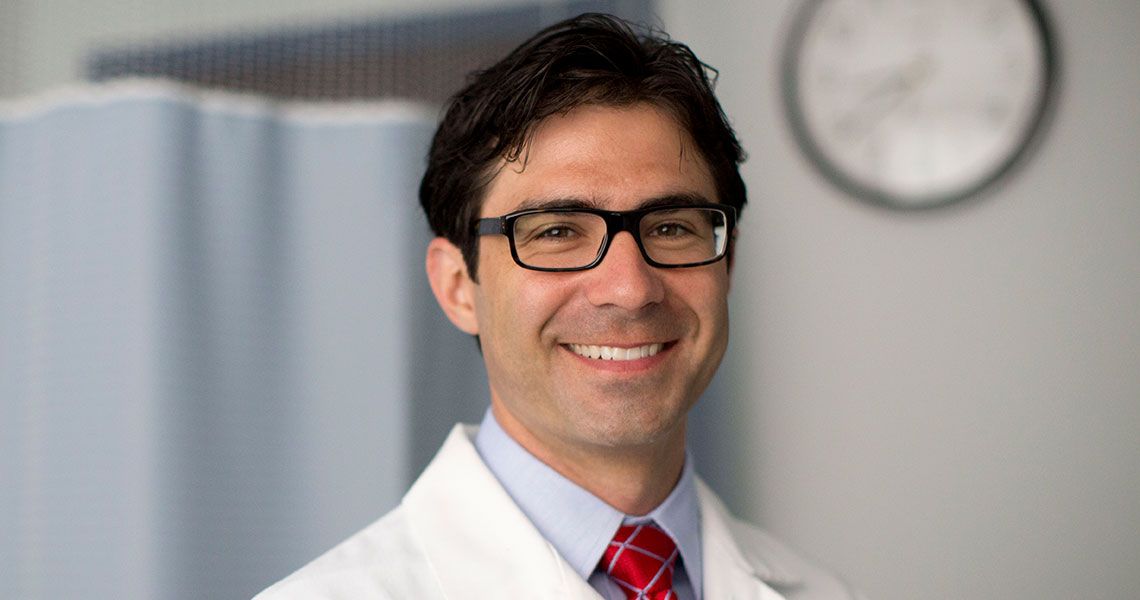The newest member of the Department of Urology at GW’s School of Medicine and Health Sciences (SMHS), Paul Rusilko, D.O., specializes in an area of the field that has long been underrepresented amongst the medical community in Washington, D.C. and the surrounding region — urologic reconstruction.
Rusilko first became interested in urethral stricture disease, a narrowing of the urethra due to the presence of scar tissue that can be congenital, traumatic, or infectious, during his urology residency at Northeast Ohio Medical University and his urologic reconstruction and trauma fellowship at the Detroit Medical Center. Today, he specializes in urethroplasty, the surgical procedure that involves removing or stabilizing scar tissue that causes difficulty with urination.
For his fellowship, Rusilko traveled to the Kulkarni Center for Reconstructive Urology in Pune, India. The frequent use of mopeds, rickshaws, and motorcycles, says Rusilko, makes the Indian subcontinent prone to extensive urologic trauma, an ideal location for a physician interested in urologic reconstruction. “Being in India really opened my eyes to seeing how people from other cultures live, and how their disease process varies because of that,” Rusilko says. Later, he returned to the south Asian nation as a U.S. delegate with the Society of Genitourinary Reconstructive Surgeons (GURS).
Having joined the SMHS faculty as an assistant professor of urology Aug. 1, Rusilko is enthusiastic about the prospect of transforming Washington, D.C. into a center of excellence for urologic reconstructive care. “Until now, patients have had to travel as far as Norfolk, Va. or Durham, N.C. for reconstruction evaluation and treatment,” he says. “My availability here will save patients day-long journeys.”
Rusilko is also eager to collaborate with Tiffany Sotelo, M.D. ’01, assistant professor of urology at SMHS, who specializes in female urology. “I’m looking forward to practicing with Dr. Sotelo and together being able to offer complete reconstruction care for both female and male urologic patients,” Rusilko says. “The potential is unlimited. I’m extremely excited to be a member of this team.”
While at SMHS, Rusilko plans to continue his research on radiation-induced strictures and complications. “With the increased usage of radiation treatment for genitourinary diseases, we’re seeing more post-treatment complications, oftentimes resulting in complex strictures,” he says.
In his limited free time, Rusilko, an avid outdoorsman, enjoys fly fishing in his native Pennsylvania. He even ties his own flies, which should come as no surprise considering the degree of dexterity and artistic skill that reconstructive surgery requires. “Being able to take tissue from other places in the body and substitute it into the urinary tract does take an artistic touch,” Rusilko says, “and that has always been very attractive to me.”
Find more information about the SMHS Department of Urology.



